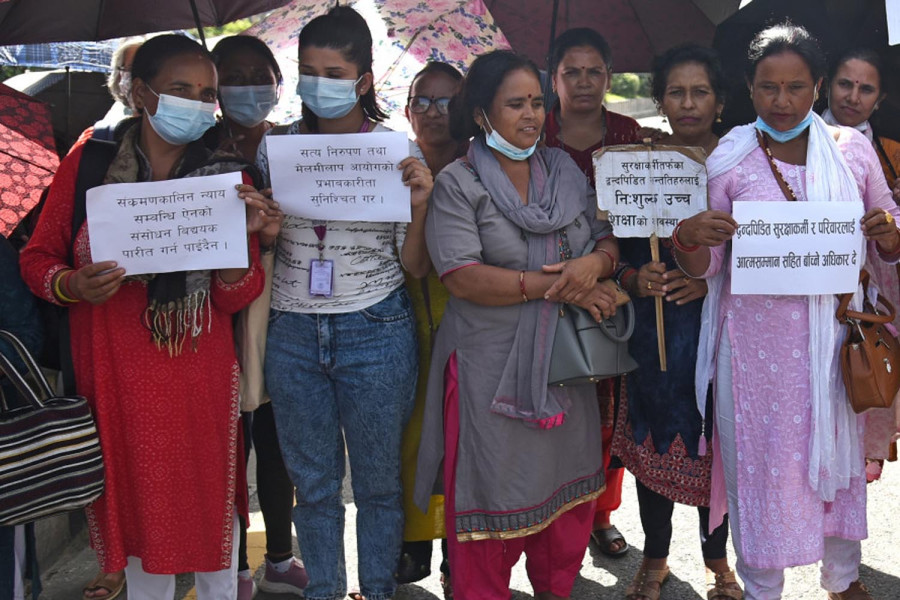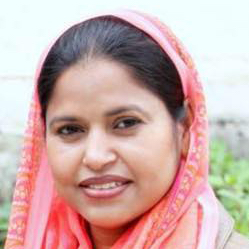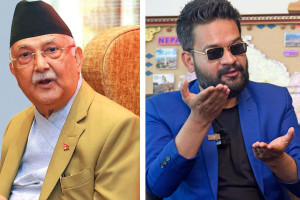Columns
Transitional justice is not revenge
We need to know the truth about what happened during the Maoist conflict that ran from 1996 to 2006.
Mohna Ansari
The government has reopened the “Transitional Justice (TJ) season” by tabling a new amendment in Parliament. For some, it is Groundhog Day again, a situation where past events keep recurring. The same amendment as last year with the same shortcomings, like trying to redefine the international definition of serious crimes, and inventing a new distinction between serious and not-so-serious murders. Again, those who claim to be protecting the interests and rights of the victims claim that the time is short; we have delayed TJ for 17 years, so there is no time for meaningful consultation.
For others, it is the starting gun for replaying the civil war and its final score. While some shout, “Ah! now is the time to get the Maoists,” others cry, “Ah! now is the time for the army and the police to pay the bill.” Fortunately, a few calmer heads are looking carefully at the flawed amendments and searching for improvements to give the TJ process more of a chance of success.
The priorities
This is not the first time, I feel it is a good moment for me to go over some of the priorities I have raised over the years, which seem to have been forgotten or never properly heard in the first place:
The amendment to the Truth and Reconciliation Commission Bill has to fully meet the instructions of the Supreme Court, or we all will just have to spend months again on the judicial merry-go-round, delaying justice and costing us all a lot of time and money.
The amendment must satisfy the criteria set out by the United Nations Office of the High Commissioner for Human Rights (OHCHR), which gives us wise advice in their technical note of 2014. We should be very grateful for this outside and non-partisan advice, a healthy note on what otherwise is a destructively polarised and politicised issue. But let’s be clear, if the UN’s advice here is not followed, the international community will not see our TJ as adequate and legitimate, so it will not be able to provide clean chits—or at least no clean chits that will have any standing outside our borders. For some leaders, getting a clean chit is their main hope from TJ, freeing them to travel whenever and wherever they want. Internationally legit chits can only be provided by an internationally legit TJ process.
For our TJ to be given the stamp of approval of international legitimacy, we must get the basics right. It will be of no use to anyone if the new TJ commissions are given commissioners on the basis of mero manchhe. The commissioners need to have public confidence to succeed, and to have that confidence, they must be known to be experts with integrity and independence. We can no longer carry on hoping to build new functional institutions in Nepal if we refuse to see the difference between “independent” and “all party”. Let us not make the same mistake again of undermining the new commissions by politicisation as we have repeatedly done with previous commissions. And let us not forget the controversy over the appointment procedure of the National Human Rights Commission (NHRC) and other commissions which have completely weakened them.
Seventeen years and we are still learning how to take the first steps! We need to know the truth about what happened between 1996 and 2006, not least to put an end to the endless rewriting of history that we are constantly subjected to. But we must have an agreed truth if we are to make sure that those who deserve it get reparations and those who don’t, don’t. We need a common narrative on what happened at that time if we are to know who is fit to have official positions today. We need to know where and how our key justice institutions, the judiciary and the police, failed. We need this diagnostic information, so we know where to start with reform of the justice sector. And is there anyone reading this who seriously thinks that the justice sector does not urgently need reform?
Objective truth
I’d like to be very clear on one point—TJ is not about revenge. TJ is about giving the Nepali people the objective truth of a traumatic recent decade in our history. No one can surely deny that the Nepali people deserve, and in fact, need to know what really happened in the scandalous events of Maharajgunj, Doramba, Kalikot and Madi. As a nation, we cannot shut our eyes and just move on. One of the main objectives of TJ is to stop such horrors from happening again. How can we do that if we don’t even know what happened in the first place?
Without this clarity, we cannot assess the past, we cannot make reforms that move us forward toward a new, better Nepal. With no TJ and no truth process, we will simply continue to live in confusion and conflicting narratives. Kicking our toes on the same rocks. A good TJ will give us the information we need on what went wrong—the mistakes we need to be clear about, so we don’t continue making them, such as letting parties fiddle in our justice system and the police force. And perhaps we might be able to move towards an army of the right size for the times we are living in.
And recent petitions in the Supreme Court should have made it clear to everyone that without a functional TJ set up, people will have the right to resort to the existing justice system to get a remedy.




 14.12°C Kathmandu
14.12°C Kathmandu















